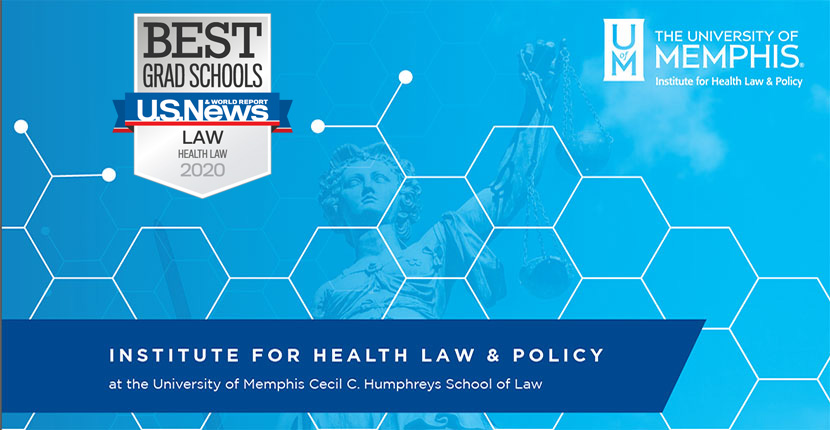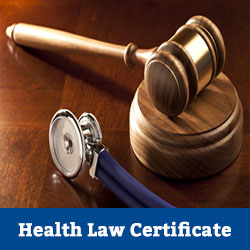INSTITUTE FOR HEALTH LAW & POLICY

 |
 |
History:
In fall 2013, the University of Memphis School of Law embarked upon a mission to create the Institute for Health Law & Policy. After a year of developing priorities and meeting with key area stakeholders, the Institute formally launched in fall 2014 with a new Institute Advisory Board, a Health Law Certificate Program, and a mission to use law to advance health via interconnected education, research, and service endeavors.
Mission & Vision:
The Institute of Health Law & Policy at the University of Memphis supports legal education, research, and community partnerships addressing health outcomes, bias, and social determinants of health.
Core Approach:
The Institute achieves its mission through engagement in three core, integrated areas: education, scholarship, and service.
Educational goals focus on developing competencies and skills in law students for interdisciplinary, client- and mission-driven practice via traditional coursework, as well as externships and other skills-based opportunities. Focus areas include ability to skillfully provide legal counsel through traditional health law firm practice and as counsel for health systems and science/biotechnology firms, as well as in public health and policy settings. Faculty have expertise in a diverse array of health law fields and are also drawn from the surrounding community, the latter contributing a critical practice-based orientation to education.
Scholarship opportunities open up for students the possibility for self-directed and faculty-sponsored research, both within and transcending the law school's boundaries, to include, for example, collaboration with affiliated faculty with the School of Public Health and the Loewenberg College of Nursing at the University of Memphis, and with the University of Tennessee Health Science Center.
Service extends the Institute's reach into the community where iHeLP endeavors to: address unmet community health law issues, host community forums on health law and policy issues, and work with community leaders to proactively address health policy needs.


